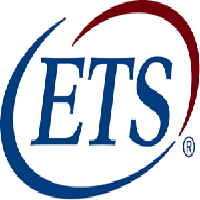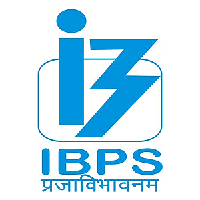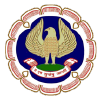
Kalinga Institute of Industrial Technology Entrance Examination (KIITEE) - For B.Tech/B.Arch/Bio-technology, B.Tech(LE), M.Tech
Based on the latest pattern | Detailed Analysis
Sample Test Paper-1
 0 Questions
0 Questions 100 Marks
100 Marks
Kalinga Institute of Industrial Technology also known as KIIT, a private deemed university located in Bhubaneswar, Odisha, India conducts the Kalinga Institute of Industrial Technology Entrance Examination (KIITEE) among other exams for admissions to its graduation/masters/doctoral level courses. The examination is conducted in Online mode during the third and fourth week of April.
Conducting Body: KIIT is popularly known as Kalinga Institute of Industrial Technology conducts the Kalinga Institute of Industrial Technology Entrance Examination among other exams. KIITEE offers admission to qualified students into the Graduation/Masters/Doctoral level courses.
Important Dates:
|
Events |
Dates |
Mode |
Link |
|
Registration Date |
16/11/2019 |
Online |
https://kiitee.kiit.ac.in/?utm_source=kiit.ac.in&utm_medium=admission_button |
|
Application Date |
16/11/2019 to 30/06/2020 |
||
|
Admit Card |
-- |
||
|
Exam Date |
24/07/2020 to 02/08/2020 |
||
|
Result Date |
-- |
Selection Procedure: Following is the section of the exam:
-
Written Test
Exam Pattern: The KIITEE examination is conducted in Online mode and contain MCQ type questions. The total time duration of the examination will be three hours. The question paper is set in English Language only. The detailed paper pattern for the various courses are as follows:-
- For (B.Tech/B.Arch/Biotechnology):-
|
Section |
No. of Questions |
Max. Marks |
|
Physics |
40 |
160 |
|
Chemistry |
40 |
160 |
|
Mathematics |
40 |
160 |
|
Total |
120 |
480 |
Note:- 1 mark is deducted for each wrong response. Those applicants who have Mathematics as a subject in their qualifying examination also write the above Paper.
- For M.Tech:-
|
Section |
No. of Questions |
Max. Marks |
|
Related to the specific branch |
120 |
480 |
Note:- 1 mark is deducted for each wrong response.
- For Nursing/Biotechnology (Dual Degree):-
|
Section |
No. of Questions |
Max. Marks |
|
Physics |
40 |
160 |
|
Chemistry |
40 |
160 |
|
Biology |
40 |
160 |
|
Total |
120 |
480 |
Note:- 1 mark is deducted for each wrong response.
- For B.Tech (lateral entry):
|
Section |
No. of Questions |
Max. Marks |
|
Mathematics |
40 |
160 |
|
Basic Electrical Engineering |
40 |
160 |
|
Electrical Mechanics |
40 |
160 |
|
Total |
120 |
480 |
Note:- 1 mark is deducted for each wrong response.
- For B.Arch:
|
Section |
No. of Questions |
Max. Marks |
|
Mathematical Ability |
30 |
120 |
|
Analytical & Logical Ability |
30 |
120 |
|
Verbal Ability |
40 |
160 |
|
Gen. Knowledge |
20 |
80 |
|
Total |
120 |
480 |
Note:- 1 mark is deducted for each wrong response.
- For M.Tech:
|
Section |
No. of Questions |
Max. Marks |
|
Questions related to the B.E./B.Tech syllabus of the concerned discipline |
120 |
480 |
Note:- 1 mark is deducted for each wrong response.
Eligibility:
>Age Limit:-
-
Not more than 21 years (For B.Tech).
-
Not more than 24 years (For B.Tech (Lateral Entry)).
-
No Age Limit for B.Arch and M.Tech
>Educational Qualification:
- For B.Tech/ BioTechnology:
-
10+2 with 60% marks in Physics, Chemistry, and Mathematics combined. Must have completed (10+2) within the last two academic years.
- For B.Tech.-Lateral Entry:
-
Engineering Diploma degree with 60% marks in aggregate.
- For B.Arch (5-years):
-
NATA Qualified/JEE Paper-II and (10+2) with 50% marks in PCM and also overall.
- For M.Tech (2-years):
-
B.E./B.Tech with First Class or equivalent CGPA or First Class MCA / First Class M.Sc. in (Comp/IT/ETC). GATE Qualified candidates will be given special preference and those who have a GATE score of in excess of 400 need not sit in the entrance exam.
Syllabus:
- General Knowledge:
-
Awards
-
Books and Authors
-
Country Capitals
-
Country Currency
-
Dance Artists
-
Food Culture
-
Important Personalities
-
Sports
- Biology:
-
Taxonomy
-
Cell and Molecular Biology
-
Reproduction
-
Genetics and evolution
-
Human health and diseases
-
Biochemistry
-
Plant physiology
-
Human physiology
-
Biotechnology and its applications
-
Biodiversity, Ecology and Environment
- Mathematics:
-
Matrices and their Applications
-
Differential Calculus
-
Trigonometry and Complex Numbers
-
Integral Calculus and its Applications
-
Analytical Geometry of two dimensions
-
Differential Equations
-
Vector Algebra
-
Probability Distributions
-
Analytical Geometry of Three Dimensions
-
Discrete Mathematics
- Physics:
-
Laws of Motion & Work, Energy and Power
-
Optics
-
Properties of Matter
-
Electrostatics
-
Current Electricity
-
Magnetic Effects of Electric Current
-
Electromagnetic Induction and Alternating Current
-
Dual Nature of Radiation and Atomic Physics
-
Nuclear Physics
-
Semiconductor Devices and their Applications
- Chemistry:
-
Atomic Structure, p,d and f – Block Elements
-
Coordination Chemistry and Solid State Chemistry
-
Thermodynamics, Chemical Equilibrium and Chemical Kinetics
-
Organic Nitrogen Compounds and Biomolecules
-
Electrochemistry
-
Isomerism in Organic Compounds
-
Alcohols and Ethers
-
Carbonyl Compounds
-
Carbohydrates, Amino acids, Lipids
- Logical Ability:
-
Analogy
-
Blood Relations
-
Critical Reasoning
-
Directions
-
Series
-
Syllogism
- Analytical Ability:
-
Agreement and Disagreement
-
Algebra
-
Analogy
-
Deductive Reasoning
-
Logical Fallacy
-
Mental Ability and Logical/Mathematical Analysis
-
Odd-Even Discretion
-
Percentage
-
Profit and Loss
-
Syllogism
FAQs:
Ques 1. How can a candidate apply for the KIIT Entrance exam?
Ans. The application form is available online only at the official website but candidates can submit the form online only.
Ques 2. How can a candidate download the admit card?
Ans. The KIIT admit card can be downloaded from the official website by entering the provided login credentials.
Ques 3. What are the modes of payment to pay the application fee?
Ans. There is no application fee/ charge for filling the application form.
Ques 4. Is there any provision of negative marking?
Ans. Yes, there is a provision of negative marking. 1 mark from the total mark gets deducted for each wrong answer.
Ques 5. What is the upper age limit of appearing in KIITEE law?
Ans. The upper age limit varies as per the course the candidate has applied for. So candidates must check the eligibility criteia before applying for the exam.
Ques 6. How long is the KIIT scorecard valid for?
Ans. It is valid for only one year.
Ques 7. Is KIIT UGC approved?
Ans. Yes, UGC has granted the deemed university status to KIIT.
Ques 8. Can a candidate change the centre after submission of the application?
Ans. Once the application procedure is done examination centre can't be changed so candidates are always advised to choose the centre wisely.
Ques 9. Can a candidate studying in the final year apply for the exam?
Ans. Yes, candidates appearing in their final year of the qualifier exam can apply but they must produce their certificate at the time of document verification.
Ques 10. What are the documents required while filling the application form?
Ans. Following are the documents required:
- Photograph
- 10th certificate
Ques 11. Can a candidate make any changes to the submitted KIITEE Application Form?
Ans. No, no changes are allowed in the KIITEE Application Form once it is duly filled & submitted.
Ques 12. What precautions are to be taken by a candidate while filling up the Online Application Form?
Ans. Please read the instructions carefully before filling up the Online Application Form.

.jpg)

.jpg)

.jpg)
.jpg)
.jpg)
.jpg)


